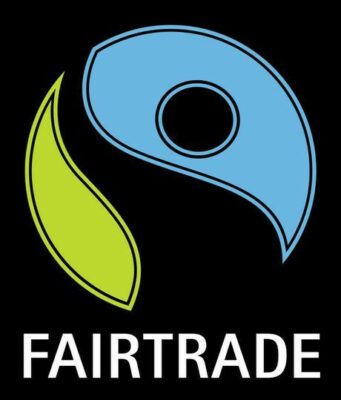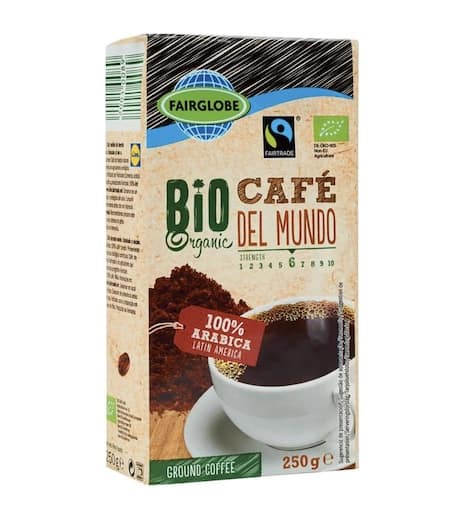In today’s world, consumers are increasingly looking for fair trade coffee, not only to fairly reward the coffee producer but also to find a guarantee of quality and sustainability in the product they are taking home.
Perhaps not everyone knows what fair trade coffee is, so in this article, we will try to clarify it and also give some tips and alternatives on how to find organic fair-trade coffee.
The basics: What is fair trade?
Before we begin, it is worth outlining a few brief words about the concept of fair trade.
In a world, as globalised as ours, there is a huge imbalance between what the big multinational brands earn (which also often employ unsustainable practices) and the real incomes of those who actually produce and grow the products.
The practice of fair trade aims to regulate trade agreements in order to alleviate these imbalances partly and to help boost the communities that produce the goods, usually in developing countries or regions in difficulty.
In other words, it aims to reward the work of the producer more fairly and also to promote a higher quality end product with fewer intermediaries in the marketing chain.
In the following section, we will see in more detail how these policies are applied to fair trade organic coffee.
What is fair trade coffee?
Almost everyone understands by now what fair trade coffee is, but in this case, it is useful to clarify the definition in order to understand the particularities of this product.
If we are talking about coffee, fair trade coffee is usually related to small producers and cooperatives (who are, of course, paid a fair price for their coffee) who otherwise would not find easy market outlets.
Most of these small producers and farming families engaged in coffee-growing live with few resources and in difficult circumstances. The price they get for their work should allow them not only to cover the costs of coffee production but also to improve their living conditions.
Technically this is called “investing in community development”, but such an abstract definition sometimes needs to be put in plain words to understand what it means. It can be summarised in three steps:
- A guarantee price is set, which must be higher than the price of coffee on the stock exchanges and international markets.
- 5% of this guarantee price is earmarked for direct projects and investments in the community that produces the coffee.
- A maximum of 60% of the cost of each order is financed.
It is important to clarify that genuinely fair trade coffee is neither linked to a specific origin, nor to a specific standard of quality, nor to closed and exact organoleptic characteristics. Its label refers exclusively to the treatment and the relationship between the distributors and the producers of the coffee.
Thus, it is possible to find fair trade coffee from Nicaragua, Honduras, Brazil… always of excellent quality and in all cases with the same guarantees.
Some fair trade coffee brands
There are a number of manufacturers, roasters and marketers that are clearly committed to making room for fair trade coffee in their line of business. We are going to talk about them in this section because it is clear that not all of them do, and it is worth giving credit where credit is due to those that reinforce their commitment to sustainability.
As you can see, many of the fair trade coffee brands tend to be closely related to organic and organic coffee, so that quality and natural processes are always guaranteed.
Starbucks fair trade coffee
Starbucks, which, apart from being a large multinational chain, is a brand that markets its own products, was one of the pioneers in introducing this type of coffee to the market on a large scale.
It is usually 100% Arabica fair trade coffee, which can usually be ordered in their shops to enjoy any of the typical brews of this chain. If you don’t have a Starbucks establishment near your home, you can always buy the drinks in the supermarket or on Amazon. Just make sure they carry the fair trade label on the packaging:

Lidl fair trade coffee
Lidl’s fair trade coffee is also very popular and can be found under the brand name “Bio-Organic – Café del Mundo” in the German chain’s shops.
In this case, it is not fair to trade coffee beans but ground coffee, which is not usually the norm for high-quality coffees, but for the time being, this is what we have. The coffee is of medium intensity, from various origins and plantations in Latin America, and always from 100% Arabica beans.

Is there such a thing as fair trade instant coffee?
Yes, there is. Although fairtrade coffee beans are always the norm, soluble coffee lovers also have some interesting fairtrade alternatives on the market. In some cases, the marketers are the same ones that already offer traditional bean formats. For example, Alternativa 3 is one of the largest players in this segment.
And fair trade coffee in capsules?
We can find it too. Although it is not the most common format, even a system as unsustainable as the single-dose system is trying to do its bit by promoting fair trade coffee in capsules. At the moment, we have only found them for Nespresso coffee machines, but we don’t think they will soon be available for other machines.
The best fair trade coffee
There is no such thing as the best fair trade coffee as such, as none is objectively “better” than any other. We have already explained that the fair trade label is related to sustainability and care for the coffee producers and not so much to the characteristics of the coffee.
In any case, you can be sure that any fair trade coffee beans will meet minimum quality standards because this is one of the cornerstones of the whole philosophy of fair trade and producer care. Without a quality end product, there is no system.
To highlight one of the best fair trade coffees on the market today, we have chosen the Compañía Colonial del Café brand variety. It is a blend of Arabica and Robusta beans, with greater strength, intensity and caffeine than a conventional coffee. Ideal for drinking with milk and in the morning.
Is it easy to find fair trade coffee?
It is certainly not the most common option, but it is not impossible to buy fair trade coffee if you know how to look for it. In this case, many of the large supermarket chains have sections for “bio” or “ecological” products (cereals, biscuits, dietary products, etc.).
And that is where you should look if you want to find something. It is not always possible, but if they have them, they include them in these sections since, as we mentioned before, a large part of fair trade coffee is organic/organic.
Easier, but with a variable stock, is the option of buying fair trade coffee on Amazon. We have discussed some brands above, and throughout this page, you will find links to other regular producers in this segment, such as Pura Vida, Consuelo or Alternativa 3.
